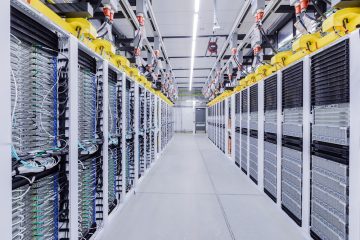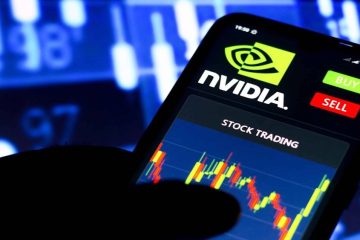Nvidia’s chip adaptations due to shift in AI sector

Nvidia’s strategic adaptation of its chips has positioned the company to maintain a competitive edge amid the evolving landscape of the AI industry. Nvidia encountered an escalating challenge at the beginning of last year: The landscape of artificial intelligence was evolving, creating opportunities for competitors to emerge. With the surge in AI tool adoption among millions, the emphasis has shifted towards the practical application of the underlying models to address a diverse array of inquiries, overshadowing the resource-heavy task of training these models that had previously elevated Nvidia to prominence in the AI landscape. A significant shift in the market dynamics may provide competitors, such as Advanced Micro Devices, with an opportunity to capture a portion of market share.
Nvidia was already positioning itself to adapt and maintain its leadership in the AI sector, even as the focus shifted from model creation to their operationalization, a process referred to in the industry as “inference.” The latest AI chips, designated as Blackwell, exhibit an increase in size, enhanced computer memory, and employ less-precise numerical representations in AI computations. They can also be interconnected in substantial quantities through high-speed networking, which Dylan Patel, the founder of industry research firm SemiAnalysis, noted has resulted in “breakthrough gains” in inference. “The performance improvements for Blackwell from Nvidia are significantly more pronounced in inference compared to training,” he stated.
Nvidia’s most recent quarterly earnings report on Wednesday showcased its ability to navigate the evolving landscape of the industry. The report featured sales and profits that surpassed analysts’ expectations, alongside a positive outlook for the company’s ongoing quarter. The emphasis on inference has intensified as artificial intelligence progresses towards advanced reasoning models, wherein a digital intellect systematically processes responses to user inquiries. According to Chief Executive Jensen Huang, the process may necessitate up to a hundredfold increase in computing power, as he indicated during a call with analysts on Wednesday.
“Currently, the predominant share of our computational tasks is devoted to inference, and Blackwell elevates this aspect to unprecedented heights,” he stated. “The conception of Blackwell was rooted in the framework of reasoning models.” Colette Kress, Nvidia’s chief financial officer, noted that numerous initial applications of the company’s Blackwell chips were designated for inference tasks. According to her, that pattern marked a pioneering development for a new generation of the company’s chips.
Among the firms engaged in the development of reasoning models are OpenAI, Google, and the emerging Chinese AI enterprise DeepSeek. The debut of DeepSeek in January, which claimed to have developed advanced AI models necessitating fewer Nvidia chips, sparked the initial notable concern for Nvidia since the onset of the AI surge. Huang dismissed the threat on Wednesday, characterizing DeepSeek’s progress as “an excellent innovation” that AI developers globally were drawing inspiration from.
Historically, Huang has posited that inference and training will ultimately converge as artificial intelligence increasingly mirrors human operational processes. Individuals do not assimilate new information in isolation, he remarked at Stanford University last year: “You’re learning and inferencing all the time.” Industry insiders indicate that Nvidia continues to encounter significant competition in the realm of inference. Nvidia’s progress in hardware and its investments in AI software have successfully retained its customer base; however, the emergence of new chips from both startups and established manufacturers poses significant challenges to Nvidia’s ability to sustain its leading position in the market.
Robert Wachen, a co-founder of AI chip startup Etched, which seeks to rival Nvidia in the inference market through the development of specialized chips, noted that there is already significant adoption and contemplation of alternatives. He stated that Nvidia’s chips are inherently constrained by their origins as graphics-processing units repurposed for AI rather than being specifically designed for the current demands. “Honing the Swiss Army knife has its limits,” Wachen remarked. To achieve optimal performance, the development of specialized hardware is essential. You appear to be encountering a significant obstacle.
A variety of startups have started to penetrate the market for large AI clients. Cerebras, a startup renowned for its production of the largest chips to date, announced this month its collaboration with the French AI developer Mistral to create the world’s fastest AI chatbot. Saudi Arabia’s oil behemoth Aramco is collaborating with AI chip innovators Groq and SambaNova Systems to establish extensive computing infrastructures for inference purposes. Nvidia’s more established rivals are also making strides, notably Advanced Micro Devices, which focuses its AI chip offerings primarily on the inference market. All major technology firms are engaged in the internal development of their own AI inference chips, which may rival or even replace those produced by Nvidia.
Jim Piazza, an executive at IT management firm Ensono and a former contributor to computing infrastructure at Meta, indicated that Nvidia may need to undertake additional measures to confront the competition in inference by creating chips tailored specifically for that purpose. “I suspect Nvidia will soon unveil a formidable inference solution, as I believe they risk being overshadowed in that sector,” he remarked. “While it may require a protracted period, I believe that is the trajectory we are observing.” Huang is contemplating a future characterized by significantly enhanced computing capabilities—specifically, those offered by Nvidia, he anticipates. He stated on Wednesday that reasoning models may ultimately necessitate thousands or even millions of times the computing power of their forerunners. “This marks merely the inception,” he stated.










